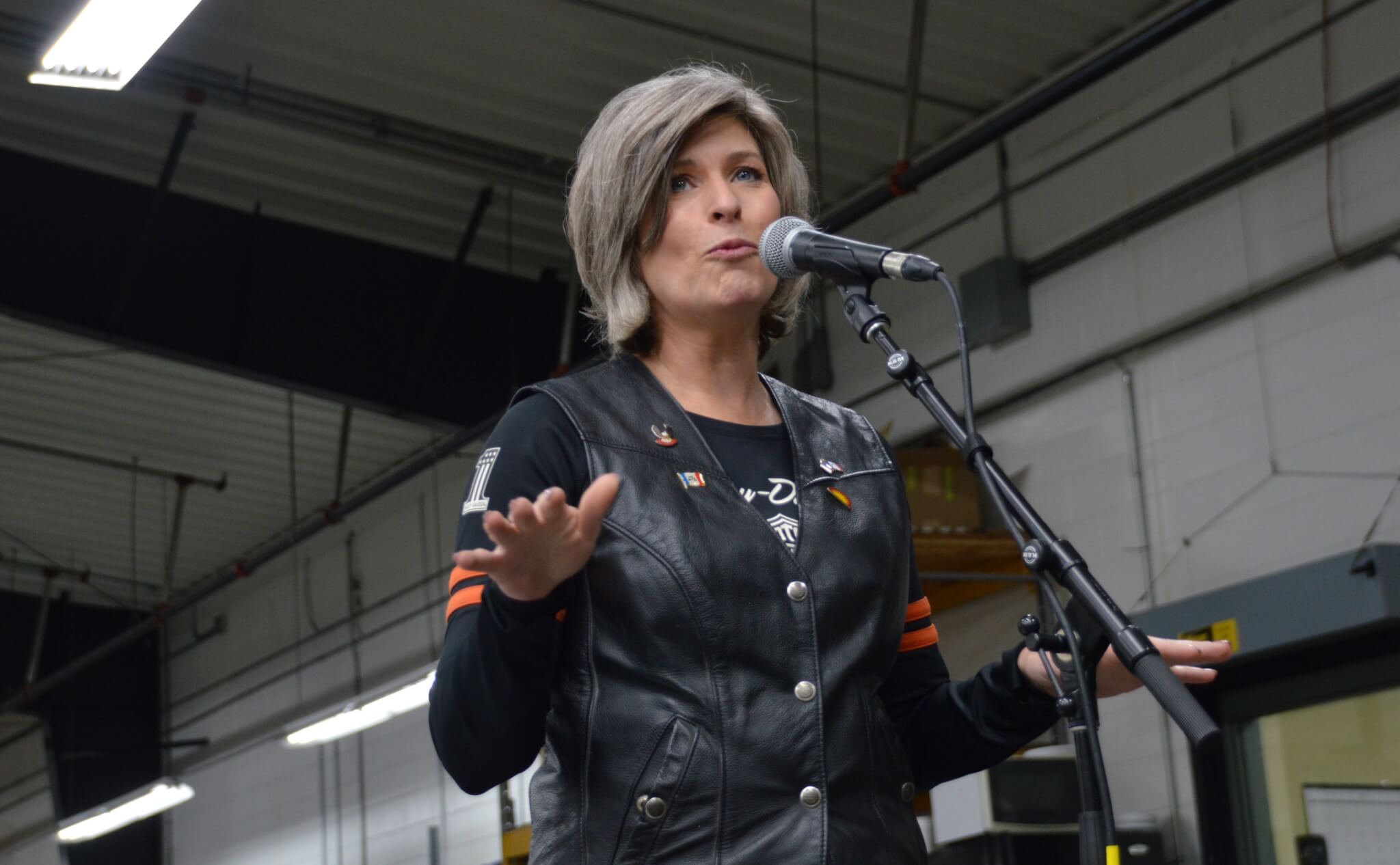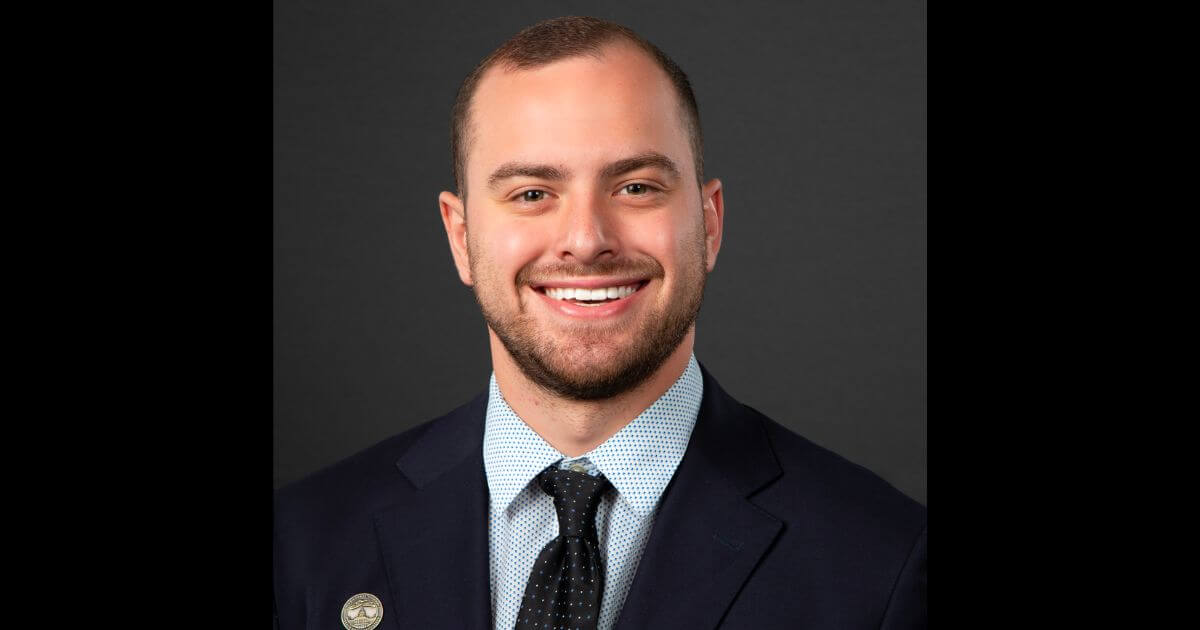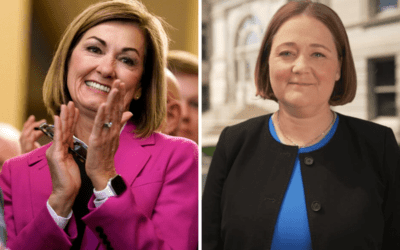
As political candidates of all backgrounds denounce the role of dark money in American politics, recent news around Sen. Joni Ernst’s campaign illustrates the difficult task of enforcing the rules already in place.
Earlier this month, the AP reported that the senator and her campaign have worked closely with an outside money group called Iowa Values to ensure Ernst’s reelection in 2020.
Iowa Values is a political 501(c)(4) nonprofit, meaning it can raise an unlimited amount of money without revealing its donors. It’s supposed to be independent of any candidate campaign, but documents show overlap between staff on Ernst’s campaign and in the group.
This news sparked curiosity about whether these actions violate election and campaign finance law, and the answer is hard to state definitively at the moment.
[inline-ad id=”2″]
Despite the ambiguity, Beth Rotman, the director of money in politics and ethics at Common Cause, a watchdog group based in D.C, said there’s strong evidence the campaign and nonprofit both violated campaign finance laws.
She said the most obvious is the rule against coordination.
“It’s been reported that there’s staff in common, addresses in common and other things that give very strong evidence that there was not separation between this political nonprofit and the candidate’s campaign,” Rotman said.
For over a decade, Rotman regulated the activities of campaigns and candidates for the federal government. She said it would be irresponsible to say absolutely that either party broke the law, but she could point to what counts as strong evidence.
[inline-ad id=”1″]
According to the AP report, Iowa Values was co-founded by Jon Kohan, a longtime consultant to Ernst.
Iowa Values fundraiser Claire Holloway Avella also works as a fundraiser for the Ernst campaign. An email obtained by the AP shows Holloway Avella asked for $50,000 from a donor who Ernst introduced her to.
Documents also show that the headquarters for Iowa Values was also the address for a former aide when he worked for the senator. That aide was recently hired to lead Iowa Values.
Rotman said that amount of overlap between staff counts as strong evidence of coordination.
“The reason this is a problem is that these political nonprofits in this case could be raising and spending very large amounts of money that are in fact well outside of what a candidate’s campaign could actually do,” she said.
This year, the FEC announced limits for campaign contributions in the 2019-2020 campaign cycle. For individuals, the limit is $2,800 per election.
[inline-ad id=”0″]
Political nonprofits like Iowa Values, on the other hand, can raise unlimited amounts of money and are not required to report all political spending.
Brendan Fischer, an attorney for the Campaign Legal Center in Washington, D.C., said Holloway Avella’s request for a $50,000 contribution could violate the ban on soliciting soft money if she were working with the campaign, as emails suggest.
“The email is somewhat carefully worded,” Fischer said. “But then the strategy memo is more explicit that Iowa Values’ activities will be aimed at helping ensure that Senator Ernst is reelected.”
The AP obtained a strategy memo as one of the documents informing its report. It states clearly the methods the group wants to deploy and says the effort could be the difference “between winning and losing in 2020 for Senator Ernst.”
[inline-ad id=”3″]
By working to reelect Ernst, Iowa Values could also be violating tax laws. As a 501(c)(4), Iowa Values is supposed to primarily advance social welfare, not pursue political activity. Those organizations can engage in political activity as long as it doesn’t become a primary activity. The problem here is that it seems Ernst’s reelection effort may be their primary focus.
According to the IRS, “The promotion of social welfare does not include direct or indirect participation or intervention in political campaigns on behalf of or in opposition to any candidate for public office.”
If it breaks those rules it could lose its tax-exempt status.
Fischer said it’s clear to him Iowa Values does operate with the primary goal of helping Ernst win reelection.
“Because Iowa Values is a 501(c)(4), under tax law, it is supposed to have its primary purpose as advancing social welfare rather than influencing elections,” Fischer said. “If Iowa Values’ primary purpose is influencing elections, and the strategy memo implies that it is, then its tax-exempt status could be at risk.”
[signup_form]
That’s one potential penalty. Another could come from the FEC, though that’s not a definite strategy because the agency can’t currently conduct investigations.
Rotman said she’s sure a complaint will be filed.
“There’s definitely legal penalties that are available,” she said. “Right now, the Federal Election Commission is without a quorum so it could take more time because the FEC needs to get back to the business of enforcing federal election law so that there are penalties there.”
Ernst’s campaign has said it had nothing to do with Iowa Values.
“The truth is, our campaign is completely separate and independent from any outside organization,” Ernst senior adviser Brook Ramlet said in a statement given to the AP. “Our campaign always has and always will act in full compliance with and in the spirit of the law. For the AP to suggest otherwise, is the definition of fake news.”
[inline-ad id=”4″]
Fischer questioned that claim.
“They can certainly say that, but the evidence shows that Iowa Values was set up by Ernst campaign aides, Ernst is directing potential donors to the group and her campaign fundraiser is expressly raising dark money for the group,” he said. “So even if the Ernst campaign hasn’t violated the law, it’s not accurate to say that Iowa Values is entirely independent of the campaign.”
Whether anyone faces penalties is uncertain because there’s a history of not upholding these rules, and the agency doesn’t have the number of people it needs to impose penalties.
“The FEC has narrowly interpreted the coordination rules that are on the books and in many cases fail to enforce even those narrow interpretations,” Fischer said. “As a result of the FEC’s dysfunction and current lack of quorum, the Ernst campaign may be banking on the agency charged with protecting American elections from doing anything about it. And they might be right.”
Rantom said that lack of consequences signals a significant problem in America. She said it means more candidates are likely to try stretching the rules as long as the FEC is unable to enforce them.
The FEC has been without a quorum for more than two months, since September 1.
“We are seeing a lot of very striking and flagrant examples of disregard for federal campaign finance law,” she said. “Rules are only as strong as the enforcement agency that’s there to make sure that they’re followed.”
by Nikoel Hytrek
Posted 12/15/19
Support Our Cause
Thank you for taking the time to read our work. Before you go, we hope you'll consider supporting our values-driven journalism, which has always strived to make clear what's really at stake for Iowans and our future.
Since day one, our goal here at Iowa Starting Line has always been to empower people across the state with fact-based news and information. We believe that when people are armed with knowledge about what's happening in their local, state, and federal governments—including who is working on their behalf and who is actively trying to block efforts aimed at improving the daily lives of Iowan families—they will be inspired to become civically engaged.


Lanon Baccam wins 3rd District Dem primary, will face Zach Nunn
Baccam defeats Melissa Vine to challenge Republican incumbent Lanon Baccam defeated Melissa Vine in Tuesday’s Democratic primary for Iowa’s 3rd...

Hardin County man running for office as Trump-loving Democrat to local party’s dismay
Brad Rewoldt, who recently changed his party affiliation from Republican, says his support of Trump will probably 'piss off' Democrats There is a...

Scheetz: Tax cuts for all Iowans, not just the wealthy
State Rep. Sami Scheetz says all Iowans should benefit from tax cuts via a sales tax reduction As a state representative, my job is to serve the...

Kalbach: What Iowa Republicans focused on during legislative session
Our state legislative session finished up towards the end of April, and I’m glad it’s over! From further de-funding and privatizing our public...

Advocates file suit to stop Iowa’s ‘unconstitutional’ immigration law
Immigration advocates filed a federal lawsuit Thursday to stop Iowa’s new immigration law—SF 2340—from taking effect arguing that the legislation...

Iowa Republicans make outlawing gay marriage key 2024 campaign priority
Iowa Republicans have made outlawing gay marriage a key goal in their 2024 party platform. During the Iowa GOP’s 2024 state convention on Saturday,...





